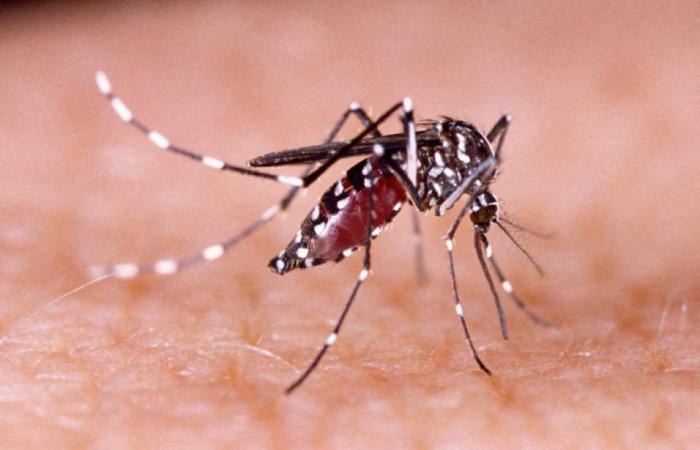By
Editorial News
Published on
June 14, 2024 at 12:47 p.m.
; updated June 14, 2024 at 12:49 p.m.
See my news
Follow News
Figures which are not reassuring as the Olympic Games approach. Since January 1, 2024, 2,166 imported cases of dengue have been recorded in mainland France. For comparison, over the last five years, the number of imported cases stood at 128, between January 1 and April 30.
The year 2024 counts like this 16 times more cases than in previous years over the same period. And just between May 1 and June 11, 500 imported cases of dengue fever have been identified in France. These figures are high even though the tiger mosquito season has barely begun and the millions of visitors expected for the Olympic Games have still not arrived…
The risk ? A significant number of imported cases could lead to a chain of transmission in mainland France, as the tiger mosquito is widely established there. As a reminder, this viral disease is most often benign, but its severe form can be serious and lead to death.
Increase in the European Union
The numbers are also climbing in the European Union, according to the European Center for Disease Prevention and Control. In 2023, 130 indigenous dengue cases reported, compared to just 71 in 2022. A significant increase compared to the 73 cases of dengue fever detected in the European Union over the period 2010 – 2021!
And for 2024? “During the first months of 2024, several countries reported a substantial increase in the number of imported dengue cases, which could suggest that the numbers in 2024 could become even higher,” ECDC notes in a statement.
A continued spread of tiger mosquitoes
At the same time, the spread of tiger mosquitoes continues in the European Union. Well established in almost all French departments, it is also in twelve other EU countries. Another species, Aedes aegytpi, also a vector of dengue, chikungunya and Zika but also of yellow fever, is established only in Cyprus but worries European health authorities.
The populations of these insects should continue to grow. “It is widely expected that climate change will have a considerable impact on the spread of mosquito-borne diseases in Europe, for example by creating environmental conditions favorable for the establishment and growth of mosquito populations,” warns the ECDC.
This underlines the importance of developing effective tools to manage mosquito populations while respecting the environment. She also recalls individual actions to fight against mosquitoes at your level: the systematic elimination of stagnant water, in your garden, on your balcony or terrace.
With Destination Santé
Follow all the news from your favorite cities and media by subscribing to Mon Actu.






